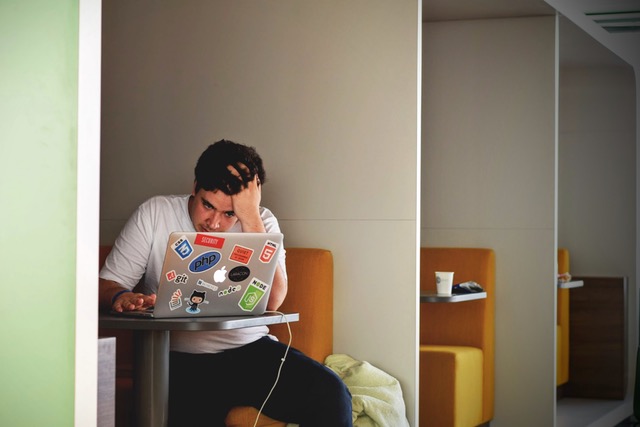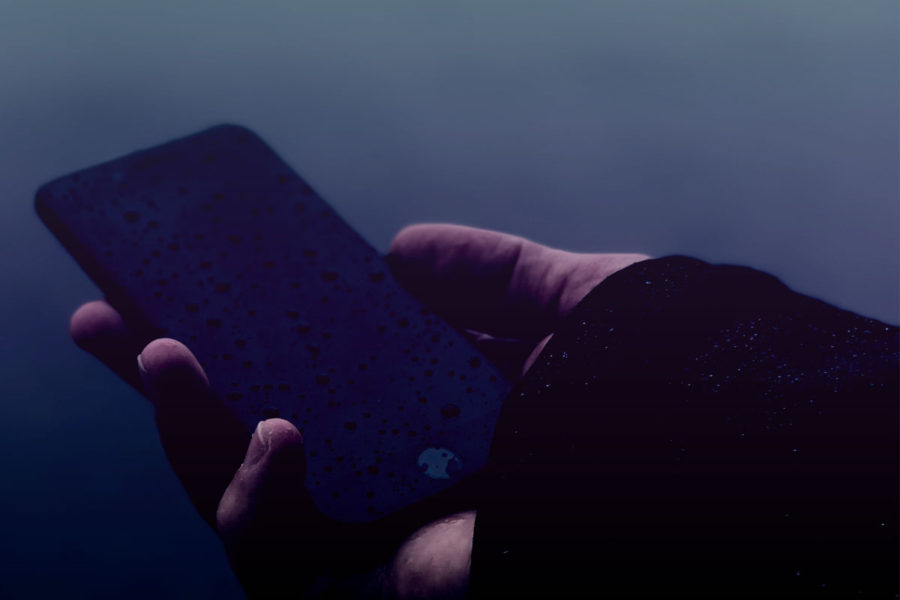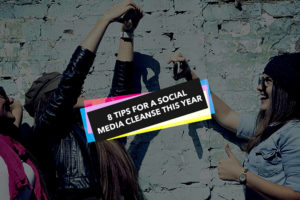A 2016 study found that the more time a person spent on social media the more likely they were to have symptoms of depression.
In a survey of 1,787 adults ages 19-32, researchers found over ¼ of participants who spent more than 61 minutes per day on social media had signs of depression. This study, coupled with others in the field, show that social media’s addictive qualities can lead to intense feelings of social isolation and depression.
Though the authors of the study don’t think social media is all bad, clear warning signs are there. Do you need to log off for good? One, it’s not that easy to do. Two, it might not be necessary to go cold turkey. But being proactive can help you maintain a healthier relationship with your social media self and avoid feelings of depression.
How Much Is Too Much?
So, how can you tell if you’re spending a little too much time on social media? Start with these five signs:
1. All you are seeing is negative
Have you noticed that there is more and more negativity in your feeds? Too much of the 24 hour news cycle, political rants, and violent images can have significant impact on your mental health. While staying active and engaged is important, reading seven different (yet equally angry) versions of a single event can start to feel overwhelming.
Positivity is contagious and so is negativity. Discouraging news reports and consistent negative images can cause psychological changes. Your thoughts become increasingly sad and anxious which can alter how you view the world around you.
If scrolling through your Facebook feed gives you the same feelings of anxiousness and stress that going in for surgery does – it’s time to log off.
2. You’re constantly comparing yourself to others
As you scroll through your Instagram feed you see your friend who always posts gym selfies of her/his rock solid abs and you feel a little bit jealous. While jealousy is a normal human emotion, you find yourself spending more time in front of the mirror wishing you looked like that gym selfie. You’re feeling more and more negative about the image you see.
Social media can force us into a comparison model of thinking. People post the best of the best and leave out all the mediocre parts of their day. No, they didn’t actually wake up like that. We don’t see what goes into creating that image. That gym selfie could have come from forty takes, sucking in, the light majestically coming in from outside, and a duck face, to look the way that it does. It’s staged.
If you start to feel like you’re never good enough, it’s a warning sign you need to step back. The truth is, the grass is not always greener on the other side. It can be easy to assume that everyone is better off than you when seeing all the happy pictures people post.
When you compare an expertly choreographed show of perfection to your everyday life, you’re bound for failure. If jealously starts to dominate your life, it could be a sign that social media is wreaking havoc on your mental health.
3. You’re feeling extremely lonely
Let’s go back to that picture of your friends hanging out without you. It may make you think or say to yourself, “They must be having so much fun, how could I possibly be missing this?” Just as comparison can lead to depression, so can FOMO.
Feeling excluded from your friends’ fun can cause you to further isolate yourself. If the highly idealized versions that are posted on social media start to give you ideas that your friends are happier and better off than you, put the snapchat away.
Social isolation can cause increases in stress hormones, which means perceived social isolation from social media can do the same. If a friend’s posts always makes you feel down, hide their posts from your feed. That way you only have to look at them when you want to. Or, instead of scrolling through all the pictures, call up a friend and go for a walk together– you’ll be surprised how much you no longer feel like you’re missing out.
4. You get angry because you’re wasting time
 You decide to take a break for a few minutes after you finish your paper before you start your other work. Except those minutes turn into hours and what was a simple procrastination now has you feeling like you wasted your time.
You decide to take a break for a few minutes after you finish your paper before you start your other work. Except those minutes turn into hours and what was a simple procrastination now has you feeling like you wasted your time.
Using social media as a procrastination tool can seem really great in the moment. But when your work doesn’t get done you can get stuck feeling stressed that there aren’t enough hours in the day. Then you’re overwhelmed by the amount of work you still have to do.
An easy way to avoid stress from procrastination is to limit yourself to a certain amount of time per day on social media. Apps like Freedom, make it easy to avoid certain websites on your phone or laptop. Let’s face it: willpower doesn’t always work.
5. You are always judging others and/or feeling like others are always judging you
When you see a friend post on Instagram is your first thought to judge the picture? “Why is she wearing that? Why is he hanging out with her?” If your thoughts of others are more negative and judgmental, stepping back from social media might be the best solution.
Cyberbullying and harassment are real dangers of social media. Bullying in real life can have significant impacts on your mental state. Cyberbullying can be even worse because it allows an even larger crowd to hide behind their screens.
Approximately 43% of students report experiencing cyberbullying. Feeling ganged up on by your peers can lead to lower self-esteem, social isolation, and feelings of powerlessness.
If this is happening to you, or you see it happening to others, you can stand up. If you need more information on how to deal with cyberbullying beyond just cutting off your social media use, check out organizations like The Megan Meier Foundation.
Can social media help combat depression?
Yes — there is always a positive and a negative side to everything and social media is no exception. Social media campaigns like Aerie that refuse to use retouching on their models help promote positive body images. Organizations like Megan Meier Foundation spread awareness and help those struggling with online harassment.
Social media facilitates connections with others who are dealing with similar issues like eating disorders, depression, and anxiety. It allows people who don’t always have a voice to speak up and share their story.
In many ways, social media can help you realize you are never alone. There is always someone who can understand and listen.
***
Depression and feelings of inadequacy, sadness, and isolation caused by social media are real. Therefore, it’s important to treat them as such. Online interactions can leave you feeling just as sad, hurt, or anxious as situations in the “real world.”
If you’re feeling like social media is having a negative effect on your mental health take a step back. It doesn’t mean you have to chuck your phone out the window or break up with it for good. Knowing to be vigilant is half the battle.
Take a mental check in with yourself. Are you feeling any of the following?
Difficult concentrating
Decreased energy
Feelings of isolation
Feelings of hopelessness
Irritability
Insomnia
Intense jealously
Loss of interest in activities
Persistent sad or anxious feelings
Thoughts of suicide
***
If you, or anyone you know, is experiencing thoughts of suicide – call the National Suicide Prevention Lifeline (1-800-273-TALK(8255)). The diagnosis and treatment of depression should be performed by a health care professional.






